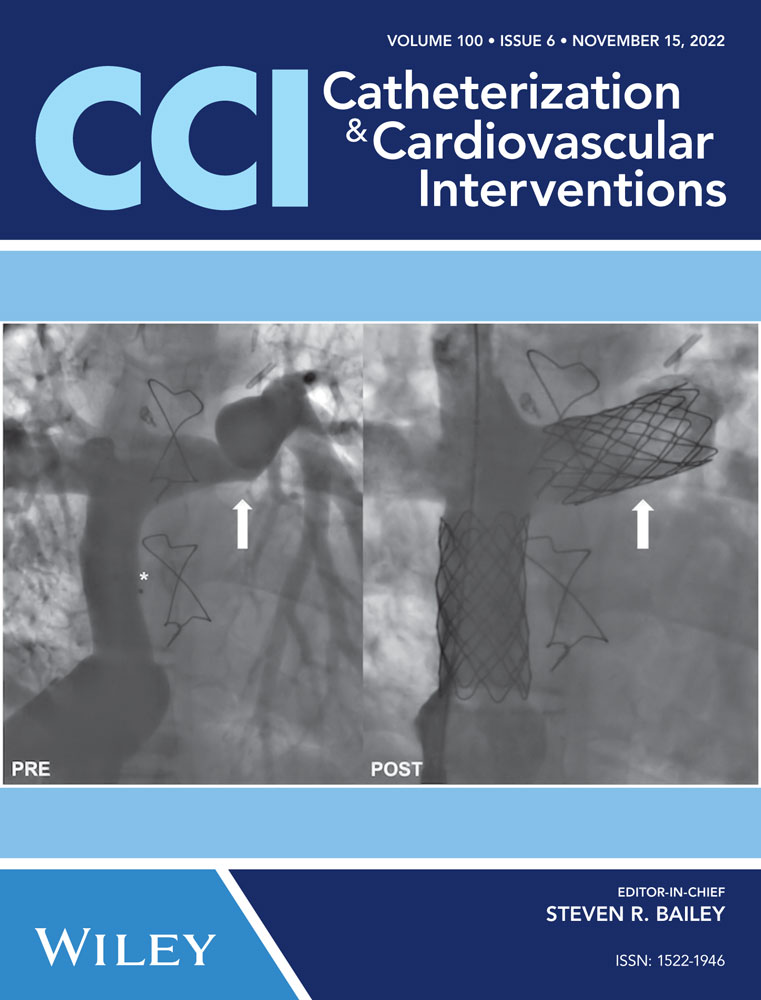Long-term outcomes of intermediate coronary stenosis in patients undergoing hemodialysis after deferred revascularization based on fractional flow reserve
Abstract
Objectives
This study aimed to assess the long-term outcomes of patients undergoing hemodialysis (HD) after deferred revascularization based on fractional flow reserve (FFR).
Background
FFR is a practical technique for assessing the functional severity of intermediate coronary stenosis. Prior research has revealed a satisfactory outcome in patients after the deferral of percutaneous coronary intervention for coronary lesions based on FFR measurement. However, little research has been conducted focusing on patients undergoing HD.
Methods
The retrospective study comprised 225 consecutive patients with FFR assessment and deferred revascularization between January 2016 and December 2019. Based on a deferral cutoff FFR value of >0.80, we assessed the differences in all-cause death, major adverse cardiac events (MACEs), and target vessel failure (TVF) between the HD (n = 69) and non-HD groups (n = 156) during a mean ± standard deviation routine follow-up of 32.2 ± 13.4 months.
Results
Although the HD group had significantly higher rates of diabetes mellitus than the non-HD group (53.6% vs. 37.2%, p = 0.021), there were no significant differences in sex, left ventricular ejection fraction, or other risk factors between the groups, nor with respect to stenosis diameter or mean FFR. The HD group had a significantly higher incidence of TVF than the non-HD group (34.8% vs. 14.1%, p < 0.001), as well as a significantly higher risk of all-cause death and MACEs.
Conclusions
The study revealed that deferred revascularization in coronary lesions with an FFR value of >0.80 in patients undergoing HD was associated with poor outcomes. Therefore, it is important to carefully monitor patients with intermediate coronary stenosis undergoing HD.
CONFLICT OF INTEREST
The authors declare no conflict of interest.
Open Research
DATA AVAILABILITY STATEMENT
The data that support the findings of this study are included in the manuscript or available from the corresponding author upon reasonable request.




